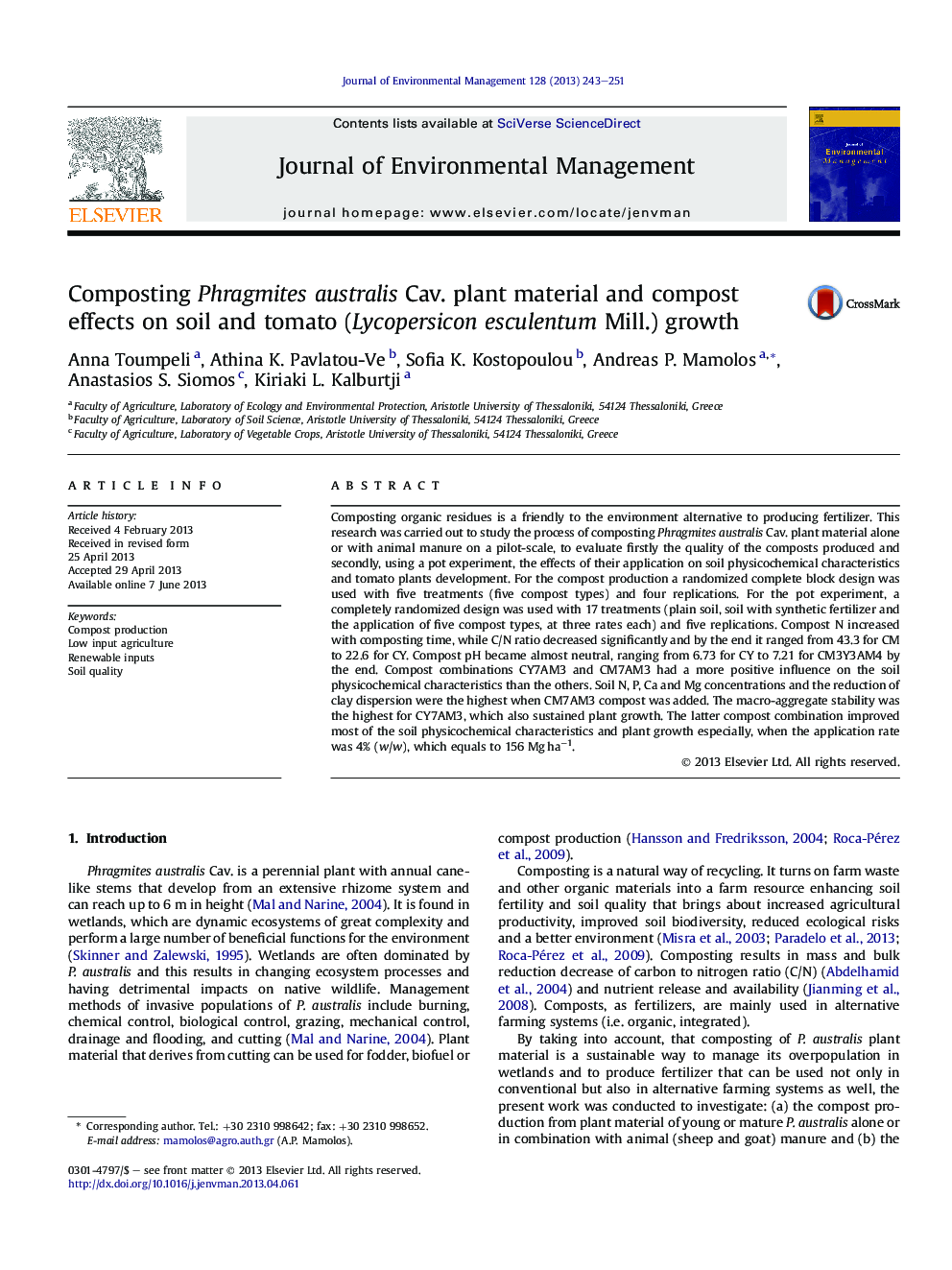| Article ID | Journal | Published Year | Pages | File Type |
|---|---|---|---|---|
| 7484189 | Journal of Environmental Management | 2013 | 9 Pages |
Abstract
Composting organic residues is a friendly to the environment alternative to producing fertilizer. This research was carried out to study the process of composting Phragmites australis Cav. plant material alone or with animal manure on a pilot-scale, to evaluate firstly the quality of the composts produced and secondly, using a pot experiment, the effects of their application on soil physicochemical characteristics and tomato plants development. For the compost production a randomized complete block design was used with five treatments (five compost types) and four replications. For the pot experiment, a completely randomized design was used with 17 treatments (plain soil, soil with synthetic fertilizer and the application of five compost types, at three rates each) and five replications. Compost N increased with composting time, while C/N ratio decreased significantly and by the end it ranged from 43.3 for CM to 22.6 for CY. Compost pH became almost neutral, ranging from 6.73 for CY to 7.21 for CM3Y3AM4 by the end. Compost combinations CY7AM3 and CM7AM3 had a more positive influence on the soil physicochemical characteristics than the others. Soil N, P, Ca and Mg concentrations and the reduction of clay dispersion were the highest when CM7AM3 compost was added. The macro-aggregate stability was the highest for CY7AM3, which also sustained plant growth. The latter compost combination improved most of the soil physicochemical characteristics and plant growth especially, when the application rate was 4% (w/w), which equals to 156 Mg haâ1.
Keywords
Related Topics
Physical Sciences and Engineering
Energy
Renewable Energy, Sustainability and the Environment
Authors
Anna Toumpeli, Athina K. Pavlatou-Ve, Sofia K. Kostopoulou, Andreas P. Mamolos, Anastasios S. Siomos, Kiriaki L. Kalburtji,
